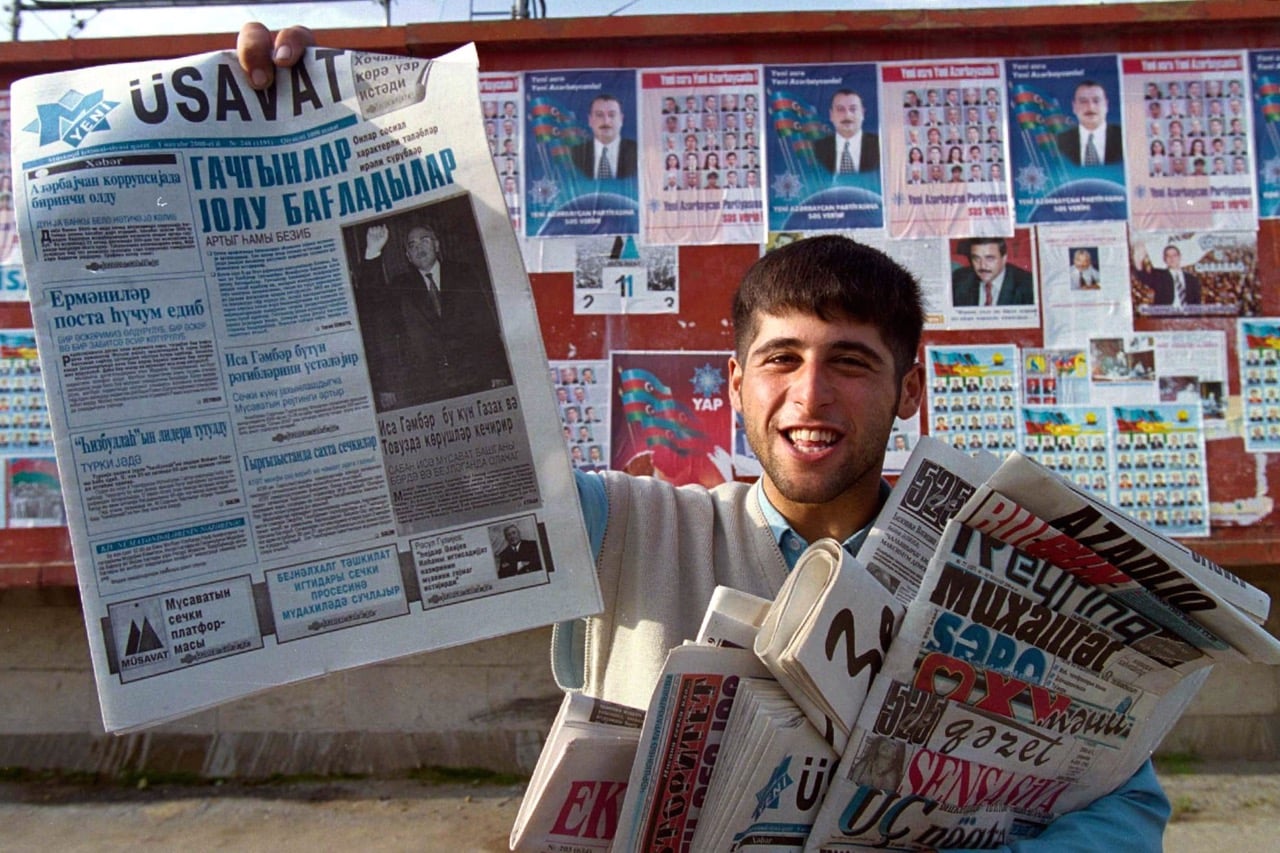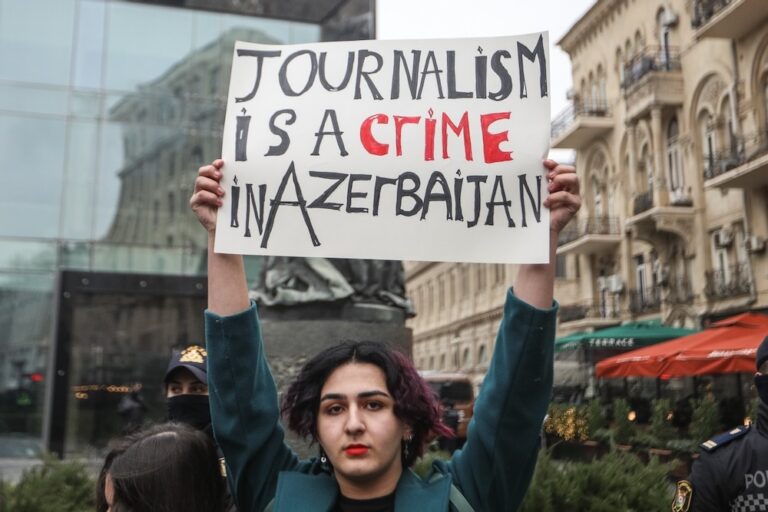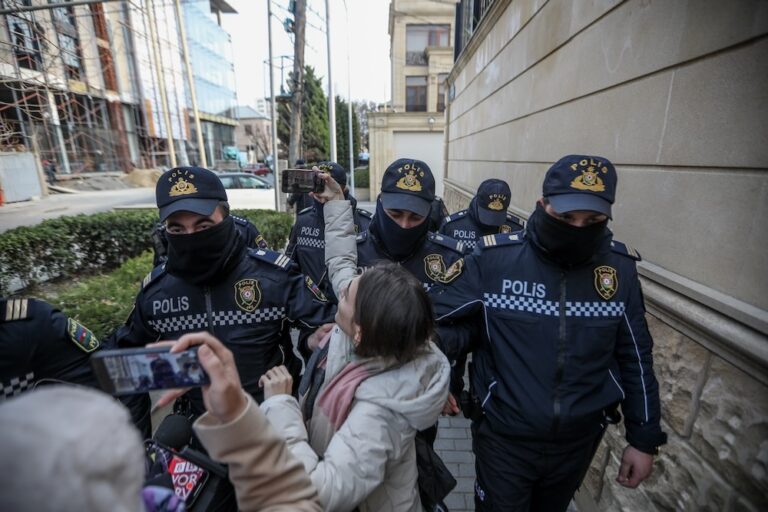IRFS calls on Azerbaijan to immediately release Azadliq executive director Faig Amirli and to stop the harassment of the newspaper and its staff.
This statement was originally published on irfs.org on 26 July 2017.
Institute for Reporters’ Freedom and Safety (IRFS) strongly condemns the Azerbaijani authorities for the politically-motivated verdict issued against Azadliq (Freedom) newspaper executive director Faig Amirli. The organisation calls on the authorities to immediately release Amirli and stop the harassment of the Azadliq newspaper and its staff.
Amirli was sentenced by the Sabail district court of Baku on 24 July 2017, to three years and three months of imprisonment on charges of inciting religious hatred and tax evasion. In addition to the prison term, the court ordered Amirli to pay an unjustified penalty of 39,050 AZN (approximately 19,900 EUR).
The prosecution presented Faig Amirli, without any evidence, as the Azerbaijani deputy and imam of the Hizmet movement led by the US-based Turkish cleric Fetullah Gulen, who has fallen out of favour and is accused by the Turkish authorities of attempting a coup.
Monitoring of the trial showed that the authorities, having arrested Amirli on 20 August 2016, could neither during the investigation nor the trial provide any evidence of his guilt on any of the charges brought forward.
The events that have befallen Azadliq newspaper in recent years show that the real motive for Amirli’s arrest was to force the newspaper into closure. Such that, before the arrest of Amirli, a government-controlled company, which has a monopoly in the distribution of printed products, refused to pay off its 60,000-AZN (approximately 30,600 EUR) debt owed to the newspaper, adding to the newspaper’s already difficult financial situation. Seeing that financial difficulties had weakened the newspaper but not its criticism, the authorities decided to arrest the newspaper’s executive director to paralyse its activities. Two weeks after Amirli’s arrest on 6 August 2016, Azadliq newspaper ceased being published. Since that time the newspaper has survived only through its web version, which in turn began to be blocked by the Azerbaijani authorities by a court decision.
“The dramatic events around Azadliq newspaper show the unbearably hard times the modern independent Azerbaijani press is experiencing,” IRFS Executive Director Emin Huseynov noted. “Founded at the onset of the collapse of the USSR [it went on] to eventually become the first independent newspaper of Azerbaijan, Azadliq issued its first issue on 24 December 1989, and more than 27 years later, by a tragic irony of fate, it became the last independent print publication to be closed. Before the cessation of its publication, the newspaper and its staff had experienced expulsion from its office, and numerous arrests of its employees, two of whom – journalists Seymur Hazi and Elchin Ismayilli – are also in jail. The repression against Azadliq has come to the point where even family members of journalists, who have continued their work from abroad, have been subjected to trumped-up arrests,” Huseynov summed up.
Today, when the attention of the whole world is focused on high-profile court proceedings against the independent Turkish media, including Cumhurriyet newspaper, IRFS calls on the international community not to overlook similar processes which are eliminating free media in Azerbaijan.
IRFS also calls on the OSCE, Council of Europe, the UN, the United States and the European Union to exert pressure on the Azerbaijani authorities to end the repression of independent media and journalists.
IRFS urges the Azerbaijani authorities to release Faig Amirli and all other critics of the regime, including journalists Mehman Huseynov, Afgan Mukhtarli, Seymur Hazi, Aziz Orujov, Nijat Aliyev, Araz Guliyev, Fikrat Ibishbayli, Afgan Sadigov, Elchin Ismayilli, Javid Shiraliyev, bloggers Rashad Ramazanov and Ilkin Rustemzade, writers Saday Shakarli and Tofig Hasanov, as well as graffiti activists Giyas Ibrahimov and Bayram Mammadov.
IRFS also calls on the Azerbaijani authorities to stop all forms of pressure and violence against the media and journalists, to unblock access to the websites of all blocked independent media outlets, and to allow independent print, electronic and online media to function freely.



